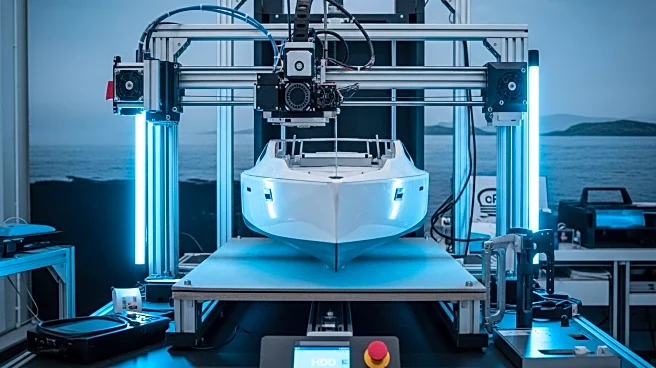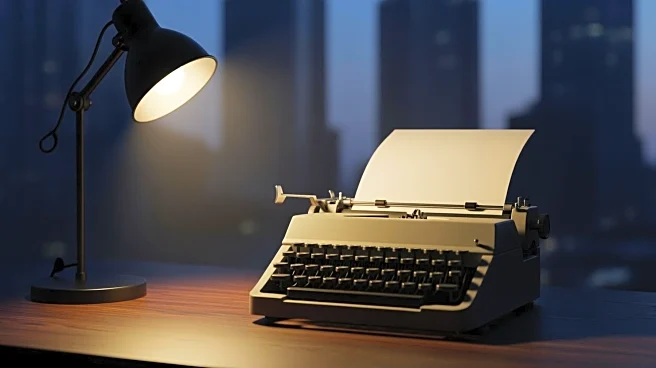What's Happening?
Compute Maritime is spearheading a £700,000 project aimed at revolutionizing maritime vessel design and production through the integration of advanced 3D printing technologies. The initiative is led by one of the UK's leading specialists in robotic 3D printing systems, Rapid Fusion, which will manage the manufacturing component of the project. This effort is expected to significantly reduce design costs, accelerate design cycles, and enhance overall design efficiency. The project highlights the growing importance of digital manufacturing and the flexibility of SCARA robots in future-proofing production processes. Additionally, the shift towards sustainable design and infrastructure is underscored by the green industrial property markets, such as Prodezi in Vietnam.
Why It's Important?
The integration of 3D printing in maritime vessel design represents a significant advancement in industrial design, offering potential cost savings and efficiency improvements. This technological shift is crucial for the maritime industry, which faces increasing pressure to innovate and reduce environmental impact. By adopting digital manufacturing techniques, companies can streamline production processes, reduce labor costs, and enhance product differentiation. The focus on sustainability aligns with global trends towards greener industrial practices, which are essential for long-term economic and environmental viability. Stakeholders in the maritime and manufacturing sectors stand to benefit from these advancements, potentially leading to increased competitiveness and market share.
What's Next?
As the project progresses, stakeholders will likely monitor the impact of 3D printing on production efficiency and cost-effectiveness. The success of this initiative could encourage further adoption of digital manufacturing technologies across the maritime industry and beyond. Companies may explore additional applications of 3D printing to enhance product design and sustainability. The emphasis on green industrial practices may also lead to increased investment in sustainable infrastructure and design, potentially influencing policy decisions and industry standards. Continued collaboration between technology providers and manufacturers will be crucial in driving innovation and achieving project goals.
Beyond the Headlines
The project not only highlights technological advancements but also raises ethical and cultural considerations regarding sustainable design practices. As industries increasingly prioritize environmental responsibility, the cultural shift towards sustainability may influence consumer preferences and corporate strategies. Ethical considerations around labor practices and resource utilization will also play a role in shaping the future of industrial design. Long-term, the integration of advanced technologies like 3D printing could redefine industry norms, leading to more efficient and environmentally friendly production methods.









